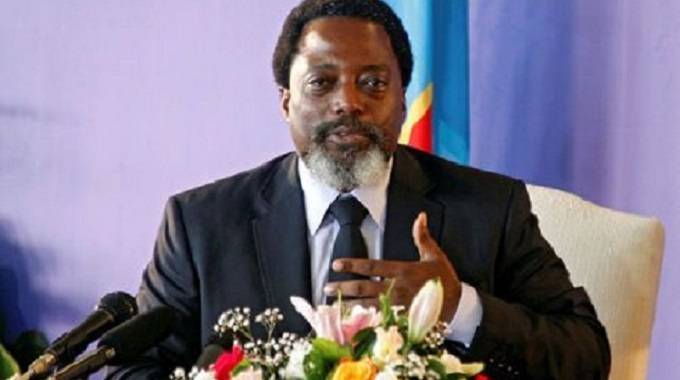DRC shuns SA election assistance

Former president Thabo Mbeki will advise the South African government on how to deal with issues surrounding the upcoming election in the Democratic Republic of Congo (DRC), after officials there rejected outside assistance.
International Relations Minister Lindiwe Sisulu said in a briefing recently that Mbeki was not appointed by President Cyril Ramaphosa as a special envoy to that country, but was more broadly asked to “support us in our understanding of how to deal with the issues around the Great Lakes, because of his vast experience and knowledge of the area”.
Presidency spokesperson Khusela Diko said a formal announcement would be made once the “modalities” were finalised. She said a former president could not play the role of a special envoy, but rather be a facilitator or a mediator.
The president of the Democratic Republic of Congo has ended speculation that he would seek re-election, now well beyond his original term limit. Joseph Kabila’s decision to step down eases some fear of a slip back into devastating violence.
Following a report two weeks ago that Mbeki was appointed special envoy, DRC President Joseph Kabila’s foreign policy advisor, Barnabe Kikaya bin Karubi, told local media Mbeki would not be granted accreditation because special envoys had not served the DRC in the past.
Government officials said Kabila and Mbeki had a cordial relationship and spoke about the issue beforehand, but Kabila’s officials were adamant the elections should continue without any foreign assistance or interference.
The country has even refused the usual logistics assistance from South Africa’s Independent Electoral Commission to its DRC counterpart, the Commission Électorale Nationale Indépendante (Ceni).
Although Ramaphosa had expressed faith that the elections in the DRC would go ahead, officials were worried.
The elections are overdue by two years because of a government census.
Officials and diplomats now fear the electronic voting machines used for the first time could fail and halt the elections halfway through as they had not been properly tested.
An Ebola outbreak, which has claimed 77 lives so far in the violence-prone North Kivu province, could also make it difficult to send elections officials into some parts of the country. Even though the World Health Organisation said the outbreak was largely contained, it could still spread.
There are fears that supporters of former vice-president Jean-Pierre Bemba, who was barred from running in the presidential elections because of his conviction by the International Criminal Court in March for bribing a witness, could stage protests. Bemba walked free after his conviction for war crimes was overturned by the court.
Bemba’s supporters are demanding he be allowed on the ballot for the December 23 presidential election. He is appealing the decision to bar him from the elections.
Congo’s highest court is expected to issue a ruling on Bemba’s candidacy on September 19.
Another disqualified opposition leader is Moïse Katumbi, who was found guilty in absentia of financial fraud and who faces fresh charges of “harming the state’s domestic and external security”.
The disqualification of candidates came up in a meeting between Ramaphosa and Kabila earlier in August ahead of the Southern Africa Development Community (Sadc) summit, at which Kabila assured leaders that a fair process was being run by Ceni.
Sisulu was angry that the French publicised a phone call between Ramaphosa and President Emmanuel Macron ahead of the Sadc summit.
Sisulu said: “We thought the conversation was between us and Macron, but we discovered later it was between ourselves, President Macron and the rest of the world.”
The French statement said Ramaphosa and Macron had spoken about the situation in the DRC and that Macron “reiterated his full support for the dialogue efforts undertaken by the countries of the region, the African Union and the subregional organisations”.
A government official said this created the impression that Ramaphosa was doing that country’s bidding within the DRC. But French officials said South Africa had not indicated unhappiness with the statement before now. — News24








Comments